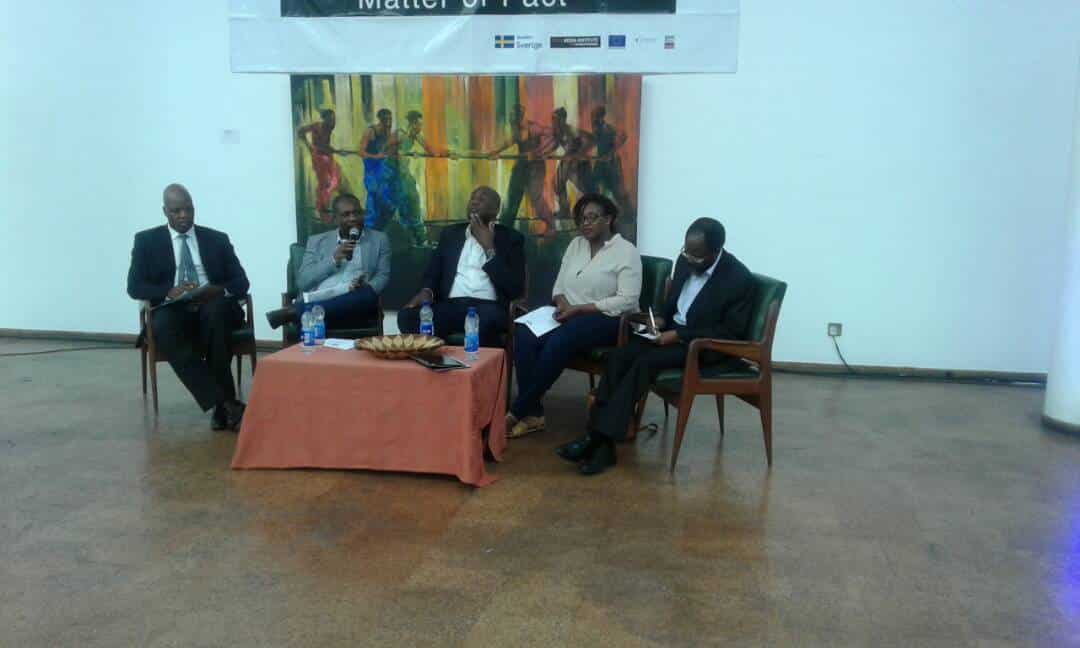The ZimFact has launched the Zimbabwe’s first national fact-checking platform to reduce the circulation of false claims.
In his address at the launch, Alec Muchadehama, the Chairman of the ZimFact Management committee said the platform would complement the media in fact checking and stories that they may have been produced under pressure of time and where the facts could be in dispute or questionable.
“We are fact checking the sources of information be it in politics and developmental agencies. We want to contribute to the building of a culture of using proven facts in news and information dissemination.
“The major aim is to improve the public understanding and to help discouraged public officials, authorities, private and public bodies from disseminating misleading information. There will be involvement of reviewing and investigating claims and publishing reports on their accuracy. We agree that the public needs more facts rather opinions to make decisions across their various facets of life,” he said.
Muchadehama indicated that fact-checking sought to help raise audiences trust in the media. He said the platform was not new in the in the media but it is the part of everyday reporting and journalism.
Patience Zirima, the Chairperson of Media Alliance of Zimbabwe said when it comes to fact checking people should not rely on social media. Journalism, she said, is expected to be truthful, reliable, factual and reliable but there were issues around critical intelligence and false news. Therefore, she urged journalists to follow codes of conduct in as much as the profession is concerned.
Dumisani Muleya, the Chairperson of the Zimbabwe’s National Editors Forum said journalism was not a random profession but a structured one.
“It’s not easy to get facts in a profession. Sometimes details might be factual but untrue. So we are going to pursue the truth. As the 2018 harmonised elections are approaching, I urge journalists to be sceptical and desist from relying on one source of information,” he said.
The vetrean journalist gave an analogy of the highlghly shared opinion by former President Mugabe to the effect that $15 billion had gone missing in the diamond mining sector. He revealed that Mugabe himself had generalised the figure but it was unfortunate that many media houses had circulated that issue as a fact.
Cris Chinaka, the Editor-in-Chief of ZimFact said the platform was aiming to establish the truth since hunting for facts is a huge exercise in Zimbabwe. He said there was need to start looking for specific areas that would need clarification.
“We are not going to pretend when creating analysis but we will be choosing learned persons with learned opinions and extend them an open space to share their views on particular areas. We need to work together so that this project of fact checking can become a success. Successful fact-checking requires cooperation and not competition because checking platforms become useful reference resource for or those in the media and information sector,” Chinaka said.
The ZimFact platform came at the right time when people were being misled by the social media. Journalists need to do a cross check and ask more than one source before publishing or circulating information.
